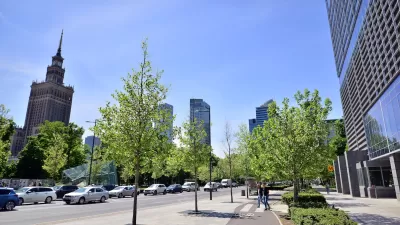A California Court of Appeal wades into the history of driving laws to determine if a drunken cyclist who maimed a jogger can be charged with reckless driving. The cyclist was not charged with drunken driving. Not all laws are applied the same.
Bob Egelko, courts reporter for the San Francisco Chronicle, reports on the landmark July 17th decision [PDF] by the Second District Court of Appeal for the State of California to allow charging a drunken bicyclist who maimed a jogger with "reckless driving". The court was only determining whether the cyclist could be charged and under what laws, rather than rendering a verdict on the cyclist. First, the circumstances.
After leaving Los Angeles Dodger Stadium in April 2013, Jorge Velasquez Jr, was "pedaling on a hilly street, veered onto the wrong side of the road to avoid a car and slammed into Suddha Russell, a Los Angeles pediatrician who was out jogging, " writes Egelko
Russell was in a coma for 10 days and suffered broken bones in her face, the court said. Velasquez's blood alcohol measured at more than twice the legal limit for drivers.
Citing "a law that defines a 'vehicle' as a device that can carry a person or property on a roadway, 'excepting a device moved exclusively by human power'", the public defender sought to have all charges dismissed. Furthermore, the defender "argued that the Legislature "has been silent on 'reckless riding' of bicycles.""
But the court said a 1982 law specifies that anyone riding a bicycle on a road "has all the rights and is subject to all the provisions applicable to the driver of a vehicle...The panel said the Legislature enacted the 1982 measure in response to a 1980 ruling that had spared cyclists from criminal penalties.
The one exception to the "equal treatment under driving laws" is for driving under the influence.
"Bicyclists and drivers of motor vehicles will often pose different levels of threats by virtue of the contraption they drive," Justice Richard Aldrich acknowledged in the 3-0 ruling, observing that bikes are generally less likely to inflict "carnage and slaughter."
Consequently, drunken cyclists receive lesser sentences and fines than motorists convicted of driving while intoxicated, and that explains the decision by the LA district attorney to charge Velasquez with reckless driving as punishment is based "on the harm caused". The law also "provides notice that the bicyclist could be subject to the same criminal penalties as a reckless driver of a motor vehicle," Aldrich said.
BikinginLA sums it up nicely, citing both laws in the vehicle code:
(T)he court ruled that CVC 21200, which gives cyclists with all the rights and responsibilities of drivers, meant that all traffic laws that apply to motorists apply to cyclists — unless the law is specifically written to exclude bicyclists, such as the statue setting separate penalties for riding under the influence.
"It was the first appellate decision on the issue, and will become binding statewide unless overturned on appeal," writes Egelko.
Egelko references a 2012 pedestrian fatality in San Francisco caused by a cyclist who allegedly ran three red lights, and was charged with felony vehicular manslaughter. The cyclist, Chris Bucchere, pled guilty. The case never went to court, notes Egelko.
Egelko's colleague, columnist Jon Carroll, has some fun with the decision in his July 25th column, "Drunken pedestrians beware; your time is coming." However, I would suggest it should be more appropriately titled, "Reckless pedestrians beware..."
FULL STORY: Court rules that even on a bicycle, it's reckless driving

Study: Maui’s Plan to Convert Vacation Rentals to Long-Term Housing Could Cause Nearly $1 Billion Economic Loss
The plan would reduce visitor accommodation by 25,% resulting in 1,900 jobs lost.

North Texas Transit Leaders Tout Benefits of TOD for Growing Region
At a summit focused on transit-oriented development, policymakers discussed how North Texas’ expanded light rail system can serve as a tool for economic growth.

Why Should We Subsidize Public Transportation?
Many public transit agencies face financial stress due to rising costs, declining fare revenue, and declining subsidies. Transit advocates must provide a strong business case for increasing public transit funding.

How to Make US Trains Faster
Changes to boarding platforms and a switch to electric trains could improve U.S. passenger rail service without the added cost of high-speed rail.

Columbia’s Revitalized ‘Loop’ Is a Hub for Local Entrepreneurs
A focus on small businesses is helping a commercial corridor in Columbia, Missouri thrive.

Invasive Insect Threatens Minnesota’s Ash Forests
The Emerald Ash Borer is a rapidly spreading invasive pest threatening Minnesota’s ash trees, and homeowners are encouraged to plant diverse replacement species, avoid moving ash firewood, and monitor for signs of infestation.
Urban Design for Planners 1: Software Tools
This six-course series explores essential urban design concepts using open source software and equips planners with the tools they need to participate fully in the urban design process.
Planning for Universal Design
Learn the tools for implementing Universal Design in planning regulations.
Ascent Environmental
Borough of Carlisle
Institute for Housing and Urban Development Studies (IHS)
City of Grandview
Harvard GSD Executive Education
Toledo-Lucas County Plan Commissions
Salt Lake City
NYU Wagner Graduate School of Public Service




























